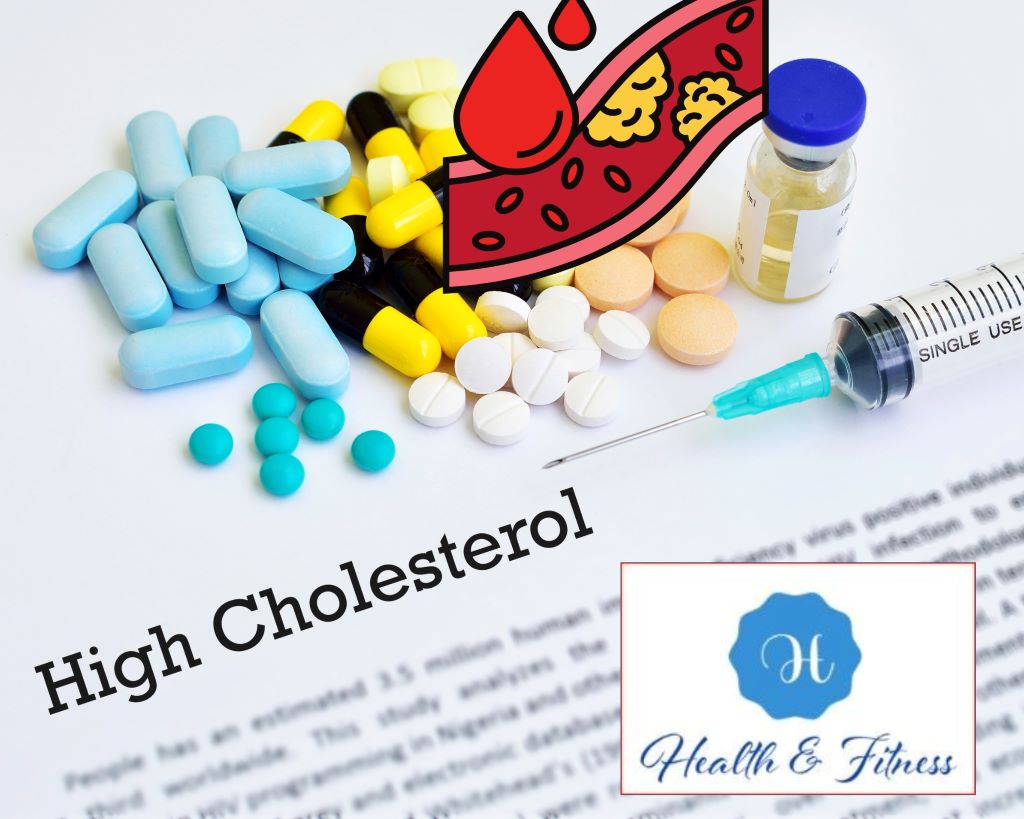High cholesterol-Symptoms, causes, and treatment.
– High cholesterol- Symptoms causes and Treatment – Understanding High Cholesterol: Symptoms, Causes, and Effective Treatment Options Cholesterol is a lipid the liver makes and is present in various meals. It is an essential component of our cell membranes and is vital in many bodily processes. However, when cholesterol levels become too high, it can pose serious health risks.
This blog post will cover the symptoms, causes, and treatment options for high cholesterol. We will also cover techniques to prevent high blood lipids and minimize heart disease and stroke risk. By the end of this article, you will better understand high cholesterol and what you can do to manage it effectively.
Definition of High Cholesterol and Its Significance to Overall Health
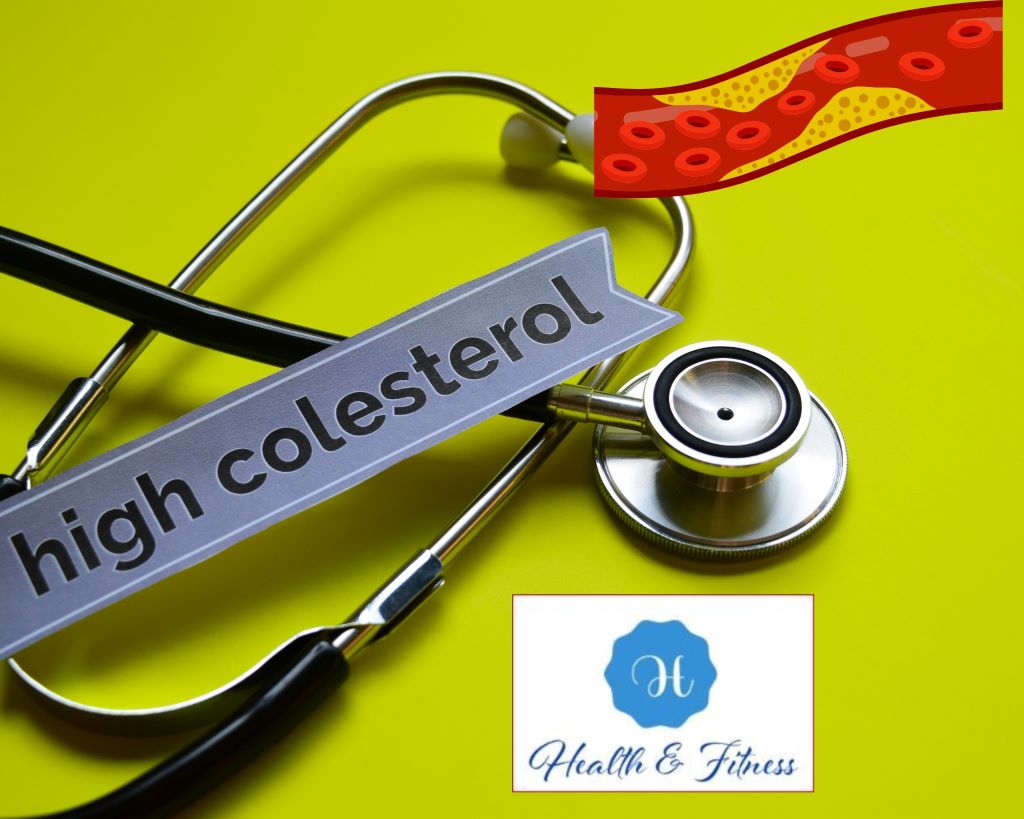
Cholesterol is a waxy substance produced by the liver and found in many animal-based foods, such as meat, eggs, and dairy products. Cholesterol is essential to the body, as it plays a vital role in the production of hormones, vitamin D, and the digestion of fats.
However, high blood cholesterol levels are linked to arterial plaque, which can increase the danger of cardiovascular disease and stroke. High cholesterol, or hypercholesterolemia, is a condition with excess cholesterol in the blood. High cholesterol, known as hypercholesterolemia, is a common condition affecting millions worldwide. It occurs when there is an excess of cholesterol in the blood; This can cause arterial plaque development, heart disease, and stroke. LDL and HDL are cholesterol kinds (HDL). “Bad” LDL cholesterol increases the risk of atherosclerosis. (plaque buildup in the arteries). HDL cholesterol, conversely, is considered “good” cholesterol because of its role in clearing the bloodstream of excess cholesterol.
What exactly are The Symptoms of High Cholesterol?
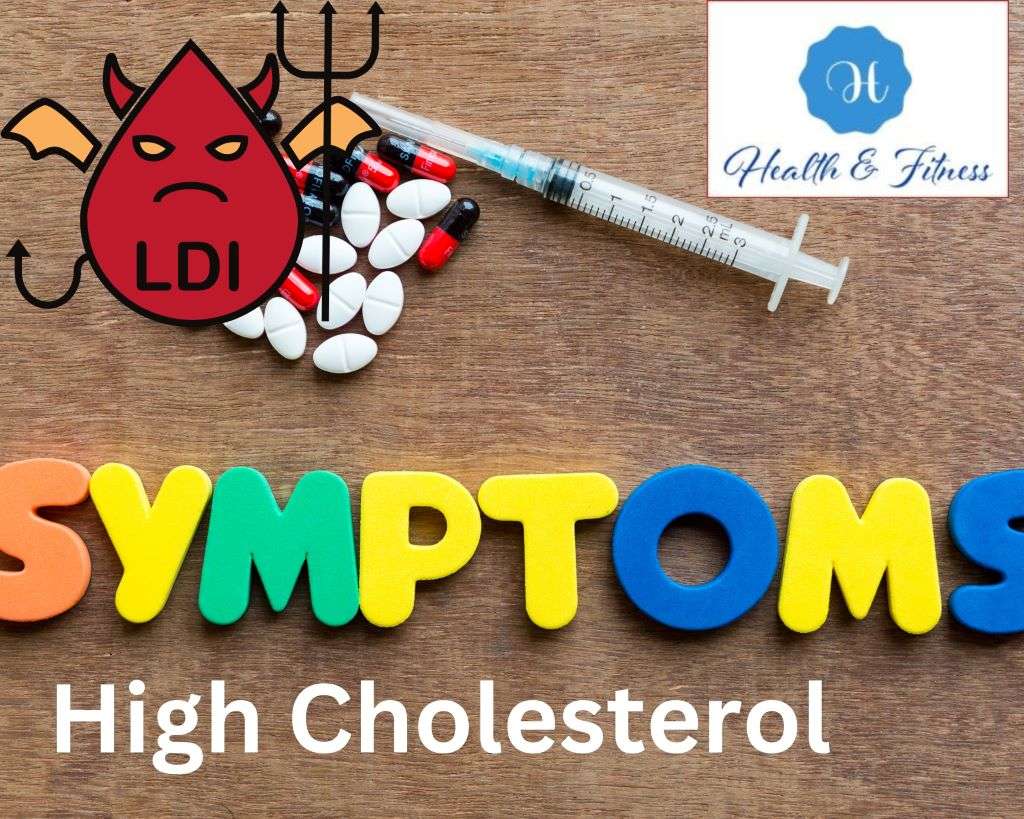
In most cases, high blood lipid levels have no apparent side effects, so it is often referred to as a “silent” condition. In most cases, people only to discover they have high cholesterol when they get a blood test for another reason. However, even though high cholesterol may not produce obvious symptoms, it can still significantly affect your health. Here are some signs and symptoms that can occur with high cholesterol:
Chest Pain:
High cholesterol can cause plaque buildup in the arteries, leading to chest pain, also known as angina.
Shortness of Breath:
When cholesterol buildup in the arteries restricts blood flow, it can cause shortness of breath, especially during physical activity.
Fatigue:
People with high cholesterol often experience fatigue and weakness, which can happen when the heart and other organs don’t get as much blood.
Xanthomas are fatty deposits that can appear on the skin, particularly around the eyes, indicating high cholesterol levels.
Yellowish Deposits on Eyelids:
High cholesterol can cause the formation of yellowish deposits on the eyelids, a condition known as xanthelasma.
Numbness or Tingling in the Extremities: Cholesterol buildup in the arteries can cause peripheral artery disease, resulting in numbness, tingling, or weakness in the arms and legs.
It’s important to note that these symptoms are not specific to high cholesterol and can occur with other health conditions.
Therefore, if you experience any of these symptoms, it is essential to seek medical advice to determine the underlying cause.
If you want to know if you have high cholesterol, your doctor can run a blood test.
People over 20 should have their cholesterol checked regularly, and those who are at increased risk for high cholesterol because of other factors may benefit from more frequent screenings.
If you find out you have high cholesterol early, you can take steps to control it before it causes serious health problems.
Risks Associated with High Cholesterol Levels
High cholesterol levels can pose significant health risks, especially when left untreated. Here are some of the potential health problems associated with high cholesterol:
- Heart Disease: The buildup of plaque in the arteries because of high cholesterol levels can narrow the arteries and reduce blood flow to the heart. Heart problems, including heart attacks and angina, may become more.
- Stroke: When the arteries leading to the brain become narrowed or blocked because of cholesterol buildup, it can increase the risk of stroke, which occurs when the blood flow to the brain is interrupted.
- Peripheral Artery Disease: Cholesterol buildup can also affect the arteries in other body parts, causing disease in the peripheral arteries (PAD). This condition can hurt your legs and feet, causing numbness or tingly. It also makes you more likely to get an infection or have a limb amputated.
- The Problem with Hypertension:
It is well known that excessive cholesterol levels are a risk factor for developing high blood pressure, increasing the likelihood of developing cardiovascular disease, stroke, and renal disease.
- Type 2 Diabetes: High cholesterol is associated with an increased chance of developing type 2 diabetes, which impairs the body’s capacity to control blood sugar levels.
6. Pancreatitis: High cholesterol levels can lead to the development of pancreatitis, which is an inflammation of the pancreas. This condition can cause severe abdominal pain, nausea, and vomiting.
These are just some potential health risks associated with high cholesterol levels.
As a result, it’s crucial to monitor cholesterol levels and take appropriate action, including making dietary and activity modifications and possibly using a medication.
Doing so can significantly reduce your risk of developing these health conditions and improve your overall health and well-being.
How are LDL and HDL cholesterol different from each other?
Low-density lipoprotein (LDL) and high-density lipoprotein (HDL) levels will be measured when your cholesterol is examined.
These two types of cholesterol have different roles in the body and can impact your health differently.
LDL Cholesterol:
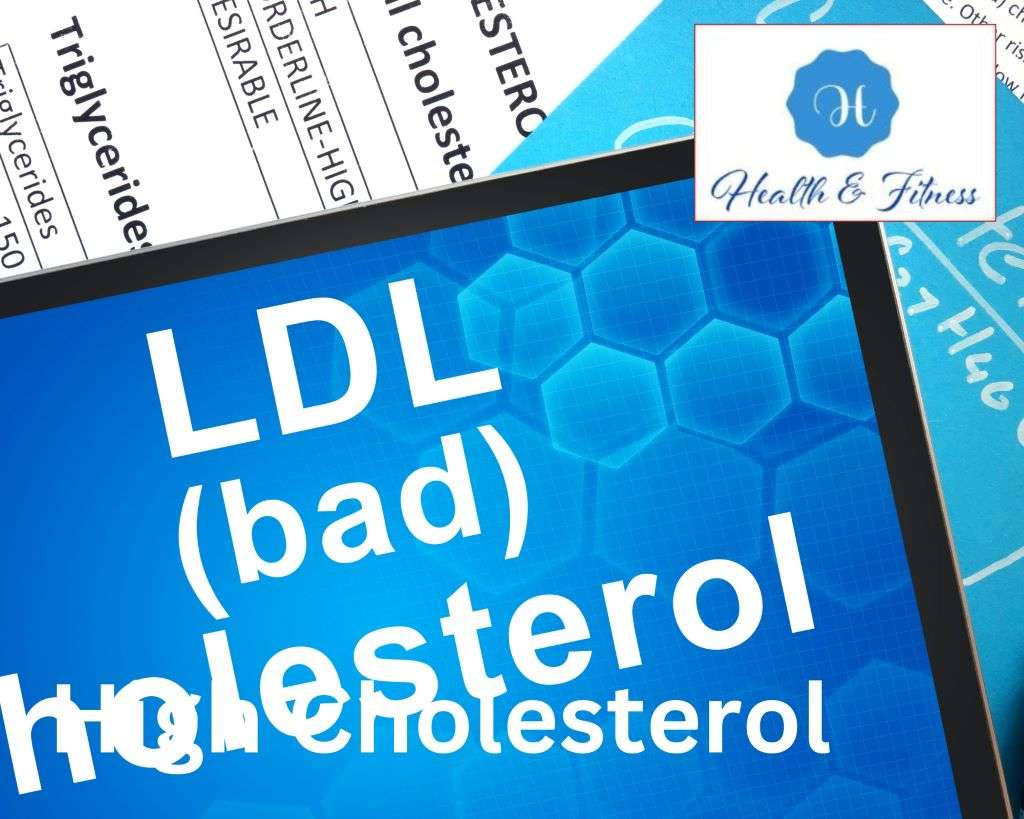
Having a higher risk of atherosclerosis has been linked to high LDL cholesterol levels, also referred to as “bad” cholesterol in some circles (plaque formation in the arteries). This can lead to a higher risk of cardiovascular disease, stroke, and other illnesses.
LDL cholesterol carries cholesterol from the liver to other body parts, including the arteries. When there is too much LDL cholesterol in the bloodstream, it can stick to the artery walls and form plaques, which can narrow the arteries and reduce blood flow.
HDL Cholesterol:
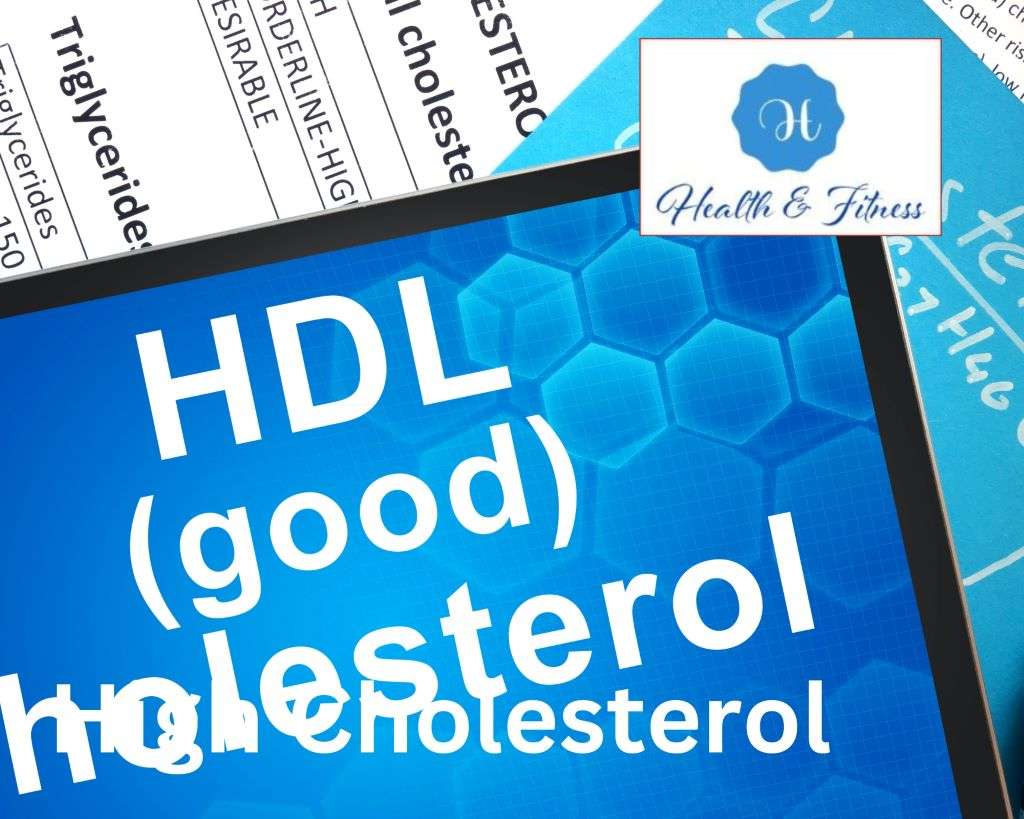
On the other hand, it is often referred to as “good” cholesterol because it can help remove excess cholesterol from the bloodstream. HDL cholesterol transports cholesterol from the arteries to the liver for breakdown and elimination. This can prevent arterial plaque and heart disease.
It is recommended to have a lower level of LDL cholesterol and a higher level of HDL cholesterol. To achieve this, lifestyle changes such as regular exercise, a healthy diet, and not smoking can be helpful. In some cases, medication may also be necessary to manage cholesterol levels.
By understanding the difference between LDL and HDL cholesterol, you can better understand your cholesterol levels and take steps to manage them effectively. If you have questions about your cholesterol levels or want to learn more about managing your cholesterol, talk to your healthcare provider.
Causes of High Cholesterol
Several hereditary and environmental factors might affect one’s cholesterol levels. Here are some of the most common causes of high cholesterol:
- Poor Diet: High saturated and trans fats can contribute to high cholesterol levels. Fatty meats, fried foods, and full-fat dairy products can increase LDL cholesterol levels.
- Lack of Exercise: A sedentary lifestyle can also contribute to high cholesterol levels. Regular physical activity can help increase HDL cholesterol levels and reduce the risk of developing heart disease.
- Genetics: In some cases, high cholesterol levels can be inherited. Familial hypercholesterolemia is a genetic condition that can cause very high LDL cholesterol levels.
- Age and Gender: As people age, their cholesterol levels rise. Women, in particular, tend to have higher HDL cholesterol levels than men until menopause, after which their stories tend to drop.
- Smoking: Smoking can contribute to high cholesterol levels by damaging the walls of the arteries and reducing HDL cholesterol levels.
- Obesity: Being overweight can contribute to high cholesterol levels, mainly if excess fat is around the waistline.
- Medical Conditions: Certain medical conditions, such as diabetes, hypothyroidism, and kidney disease, can also contribute to high cholesterol levels.
It is essential to be aware of the potential causes of high cholesterol and take steps to manage them. Lifestyle changes such as a healthy diet and increasing physical activity can help reduce cholesterol levels.
In some cases, medication may also be necessary to manage cholesterol levels effectively. Talk to your healthcare provider to determine the best approach for managing your cholesterol levels.
Diagnosis and Screening for High Cholesterol
Cholesterol screening is a routine part of preventive healthcare, and you should check your cholesterol regularly. High cholesterol usually has no symptoms. Therefore, screening is the best approach to detect it. According to the American Heart Association, adults should have their cholesterol evaluated every four to six years.
If you have a history of high cholesterol or heart disease in your family, your doctor may want to check on you more often. Blood tests are used for cholesterol assessment following an overnight fast. In the blood test, they will measure total cholesterol, LDL cholesterol, HDL cholesterol, and triglycerides. Your healthcare provider may also calculate your cholesterol ratio, which compares your total cholesterol to your HDL cholesterol.
If your cholesterol levels are high, your healthcare provider may recommend further testing or treatment.
They may also recommend lifestyle changes, such as dietary and increased physical activity, to help manage cholesterol levels. In some cases, medication may also be necessary to manage cholesterol levels effectively. Commonly prescribed medications include stations, which can help reduce LDL cholesterol levels, and vibrates, which can help lower triglyceride levels. By getting regular cholesterol screenings, you can identify and manage high cholesterol levels early before they lead to more severe health problems.
Talk to your healthcare provider about how often you should have your cholesterol levels checked and how to manage your cholesterol levels.
Treatment Options for High Cholesterol
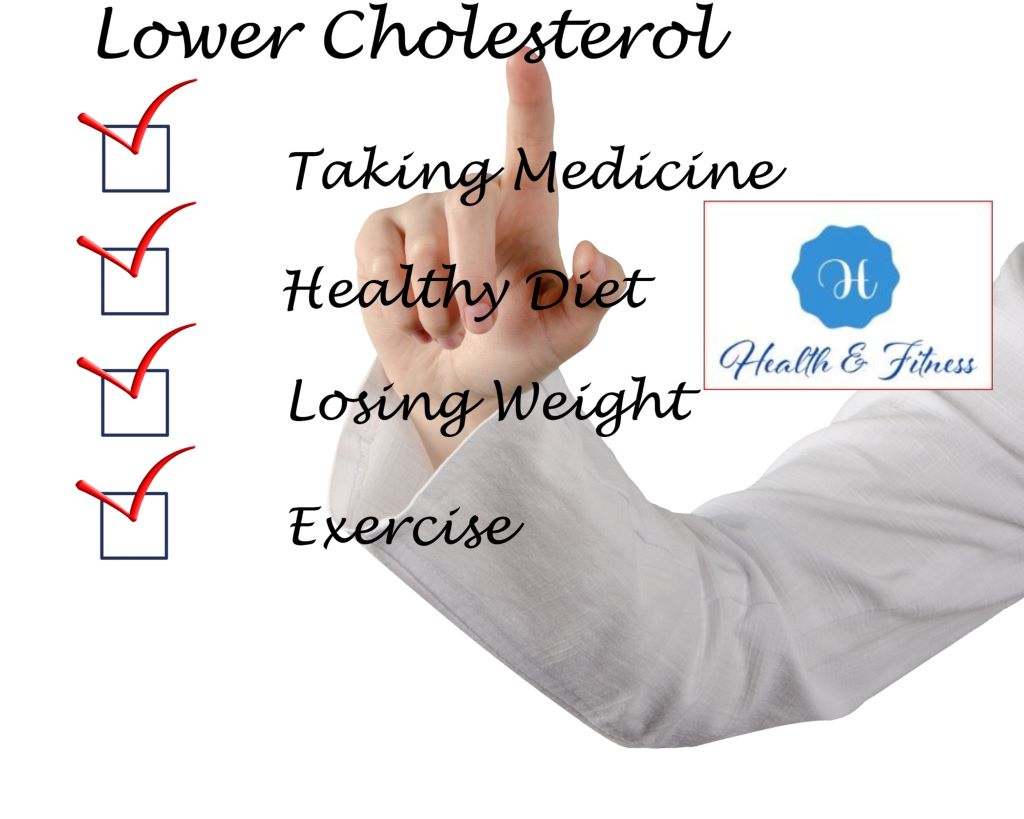
The goal of cholesterol management is to lower LDL cholesterol levels and increase HDL cholesterol levels. Treatment options for Elevated LDL cholesterol include lifestyle changes and medication.
1- Lifestyle Changes:
Lifestyle changes are often the first line of defense in managing high cholesterol levels. These changes include:
- A heart-healthy diet is high in fruits, vegetables, and whole grains and low in saturated and trans fats.
- We are increasing physical activity and exercising regularly.
- • If you are overweight or obese, you need to lose weight.
- I am quitting smoking if you are a smoker.
- We are limiting alcohol consumption.
2- Medications:
Medicine may be required if lifestyle changes alone are insufficient to manage high cholesterol levels. Medication for Elevated LDL cholesterol is typically given in the:
- Statins: These medications lower LDL cholesterol levels and may also reduce inflammation in the arteries.
- Bile Acid Sequestrants: These medications work in the digestive tract to bind to bile acids, which are then excreted, decreasing LDL cholesterol levels.
- PCSK9 Inhibitors: These medications are a newer class of drugs that can be combined with other cholesterol-lowering medications to lower LDL cholesterol levels.
- Fibrates: These medications can lower triglyceride levels and increase HDL cholesterol levels.
3- Combination Therapy:
Sometimes, a combination of medications may be necessary to manage high cholesterol levels effectively. It is essential to work closely with your healthcare provider to determine the best treatment approach for managing your high cholesterol levels. When developing a treatment plan, your provider will consider your overall health, medical history, and other factors.
In conclusion, high cholesterol is a significant risk factor for heart disease and other health problems. However, with proper management, it can be controlled and treated effectively. By making lifestyle changes and working with your healthcare provider to develop a treatment plan, you can reduce your risk of developing severe health problems related to high cholesterol levels.
High-cholesterol prevention
The best way to lower your risk of heart disease and other health problems is to avoid getting high cholesterol.
There are several steps you can take to help prevent high cholesterol, including:
- Eating a healthy diet: A heart-healthy diet prevents Elevated LDL cholesterol. Eat a diet high in fruits and low in saturated and trans fats, vegetables, whole grains, lean proteins, and healthy fats such as nuts and seeds.
- Getting regular exercise: Regular exercise can help prevent high cholesterol by making the heart healthier and assisting people in losing weight. Training should be performed moderately for at least 150 minutes per week.
- Weight control: Being overweight is a significant risk factor for high cholesterol.
Maintaining a healthy weight through diet and exercise can reduce your risk of developing elevated cholesterol.
- Not smoking: High blood lipids and heart disease are among the health problems that are more likely to happen if you smoke.
You can reduce your risk of developing high cholesterol and other health problems by quitting smoking.
- Limiting or no alcohol consumption: Consuming excessive amounts of alcohol is associated with an increased likelihood of getting high cholesterol.
If you want to drink alcohol, don’t drink too much.
- Regular cholesterol screening: Regular cholesterol screenings can help identify high cholesterol levels early, allowing for earlier treatment and prevention of severe health problems.
Lowering your cholesterol levels can reduce your chances of getting heart disease and other health problems.
Talk to your healthcare provider about ways to prevent high cholesterol, and work together to develop a plan that works for you.
Conclusion
High cholesterol is a widespread condition that can cause cardiovascular disease and stroke.
However, proper management and prevention can control cholesterol levels and reduce the risk of developing these health problems.
By eating a heart-healthy diet, exercising, maintaining a healthy weight, and not smoking, you can help prevent high blood lipids.
Additionally, regular cholesterol screenings can help identify high cholesterol levels early, allowing for earlier Treatment and prevention of severe health problems.
Medication may be necessary if lifestyle changes alone are insufficient to manage high cholesterol levels.
Working closely with your healthcare provider to develop a treatment plan is essential for managing high cholesterol levels effectively.
Finally
By understanding the causes, risks, and treatment options for high cholesterol, you can take steps to protect your heart health and reduce the risk of severe health problems. Remember to talk to your healthcare provider about ways to manage and prevent high cholesterol, and work together to develop a plan that works for you.
References
“Cholesterol and heart disease: A review” by KM Athyros et al., Lipids Health Dis, 2011. Available at https://lipidworld.biomedcentral.com/articles/10.1186/1476-511X-10-94

